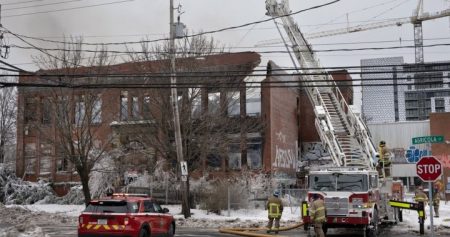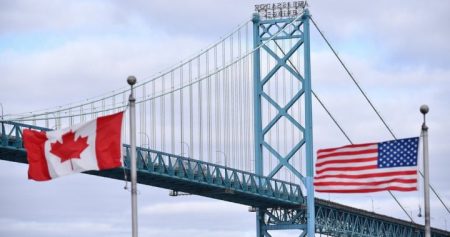Ecuador’s Presidential Election: A Tight Race Between Left and Right
Overview of the Election Landscape
The first round of Ecuador’s presidential election has set the stage for a fiercely contested second-round runoff between incumbent President Daniel Noboa and left-wing challenger Luisa Gonzalez. With 80% of the votes counted, the race is extraordinarily close, with Noboa leading by a narrow margin of 44.4%, followed closely by Gonzalez at 44.1%. This statistical tie has raised the stakes, and Ecuadoreans are bracing for a decisive second round on April 13. The election has been dominated by the country’s economic struggles and a devastating security crisis fueled by drug-related violence. The remaining 14 candidates failed to make a significant impact, trailing far behind the two front-runners.
A Surprise Surge for Luisa Gonzalez
Luisa Gonzalez, a 47-year-old politician from the left-wing Citizen Revolution Movement, has emerged as a formidable challenger, defying pre-election polls that predicted a stronger showing for Noboa. Gonzalez, a protégée of former President Rafael Correa, has capitalized on widespread discontent with the current administration. Her campaign gained momentum in the final weeks, driven by a surge in support from voters disillusioned with Noboa’s leadership. Addressing jubilant supporters in Quito, Gonzalez declared the race a “statistical tie” and called the outcome a “great victory.” Her message of change and social inclusion has resonated deeply with Ecuadoreans seeking alternatives to the status quo.
TheBackdrop: A Referendum on Noboa’s Presidency
The election has largely been framed as a referendum on Noboa’s leadership and his policies, particularly his “mano dura” (iron-fist) approach to combating crime. During his 14 months in office, Noboa has taken bold steps to address the country’s spiraling security crisis, including deploying the military to the streets and declaring a state of emergency. While these measures have won him support from some quarters, human rights groups have criticized the heavy-handed approach, citing incidents of abuse, including the tragic case of four boys whose charred bodies were found near an army base.
Noboa’s economic record has also been a focal point of the campaign. The country’s economy remains in shambles, with high levels of unemployment, inflation, and poverty. Noboa, the son of a billionaire banana magnate, had hoped to secure a first-round victory by winning over 50% of the vote. His campaign has emphasized stability and continuity, but the results suggest that a significant portion of the electorate is seeking change.
The Controversies Surrounding President Noboa
Despite his narrow lead, Noboa’s presidency has been marred by controversy. His relationship with his vice president has been contentious, with public disagreements over campaign leave and governance. In a recent ruling, the Constitutional Court invalidated two decrees Noboa used to take campaign leave during the first round of the election. This decision could complicate his ability to campaign effectively in the runoff, as it may limit his ability to appoint an interim vice president.
Noboa’s supporters remain confident, celebrating his lead with fireworks in Quito and Guayaquil. “We want him to support us and change the country,” said Myriam Medrano, a 52-year-old secretary in Quito. However, the close results underscore the deep divisions within the country, with many voters expressing frustration over Noboa’s policies and leadership style.
The Challenges Ahead
As the race heads into the second round, both candidates face significant challenges. Gonzalez must consolidate her support and convince undecided voters that her platform offers a viable alternative to Noboa’s policies. Noboa, on the other hand, must address the criticisms of his leadership and unify his base while navigating the legal and political fallout from the Constitutional Court’s ruling.
The runoff also presents an opportunity for both candidates to refine their messages and address the pressing issues facing the nation. Economic recovery, security, and governance will likely dominate the debate in the coming weeks. For Ecuadoreans, the election represents a critical moment to shape the country’s future, with voters weighing the promise of change against the stability of the incumbent.
The outcome of this closely contested election will have far-reaching implications for Ecuador, as the country grapples with its economic and social challenges. Whether Gonzalez’s momentum continues or Noboa’s incumbency prevails, one thing is clear: the second round will be a defining moment in Ecuador’s political history.












